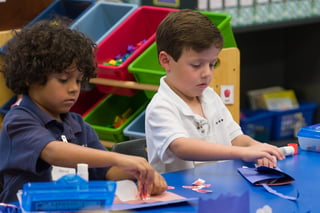Give sorrow words; the grief that does not speak whispers the o'er-fraught heart and bids it break. ~ William Shakespeare

For an adult, grief is all-encompassing. The loss of a loved one permeates your whole being. It is hard to go about your daily routine. Practically everything in life triggers mourning in different ways. It is hard to celebrate the traditional holidays like Christmas, but normal routines for school, sports, or vacations are also painful.
For a child, grief is intermittent and death is difficult to understand. A child’s grief is very near sighted and they will tend to worry about their immediate needs. They may think death is temporary and may believe the loved one will return later.
The natural tendency is for adults to protect children from the harshness of death. In an effort to shield children from the pain, adults avoid speaking about the death or use vague language. “Grandma passed away” or “Mom is no longer with us”. Actually, Grandma died.
Here are a few things you need to know to help your child grieve:
- When a death occurs, tell the child immediately. Children sense when something is not right. Do not take the risk of him or her receiving misinformation from someone else.
- Use simple and concise language. Avoid euphemisms. Children are concrete thinkers and language like “grandma has gone on or passed away” is confusing. Use concrete words like dead or died.
- Talking to a child about death is tough, but talk fosters healing. Encourage the child to ask questions. Give honest answers. It is okay to say, “I don’t know.”
- Do not be afraid to cry, laugh and share memories. Laughter and tears are both important parts of processing grief.

- Give the child choices. Allow them to participate in rituals as they choose. They may want to to participate in the selection of pictures, clothing, casket, flowers or even write something for the service.
- Remember young children grieve in short cycles. They will be grieving one minute and then want to play the next. Allow the child to play as much as they wish. Keep their routine as normal as possible. Routine communicates a sense of security for a child.
- Offer children a creative outlet to process feelings. Children express feelings through art. Guide the child to do something with their memories. They can write a story or draw a picture.

Children learn more from what we model than from what we say. When grieving with a child, give them permission to cry, to laugh, to play, and to return to the everyday normal routine of their lives. Do this by giving yourself permission to do so also.


